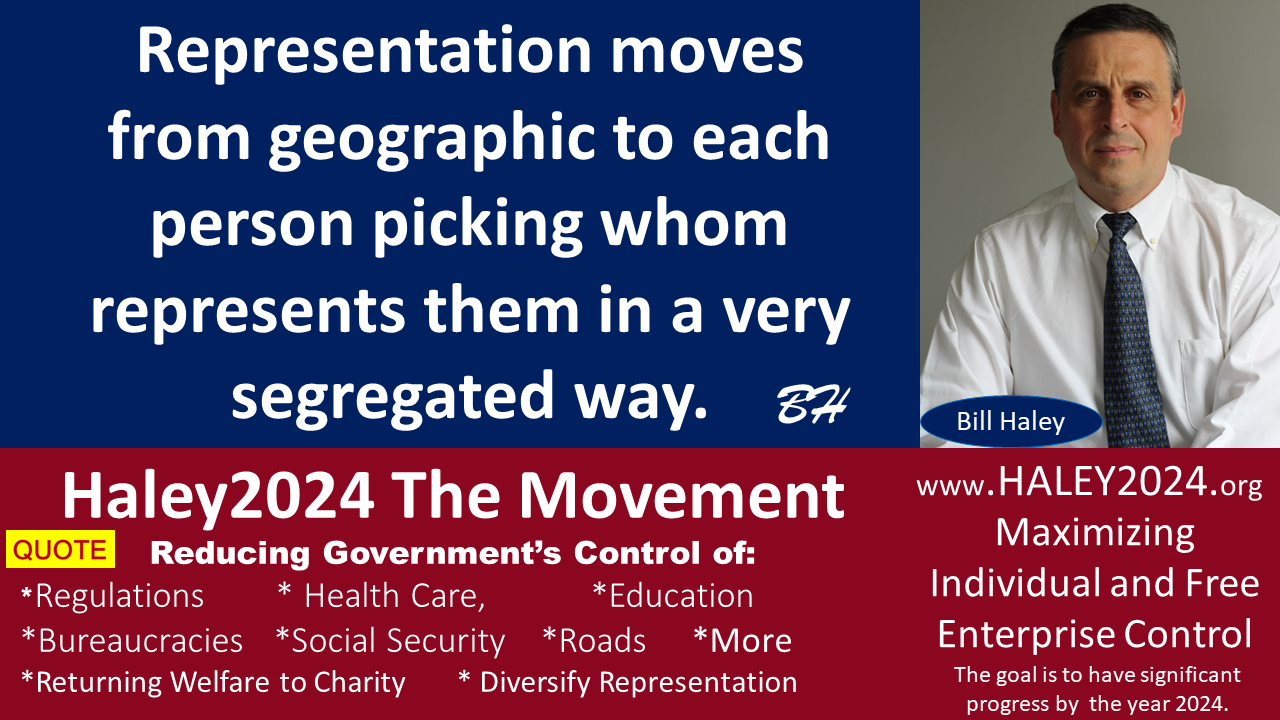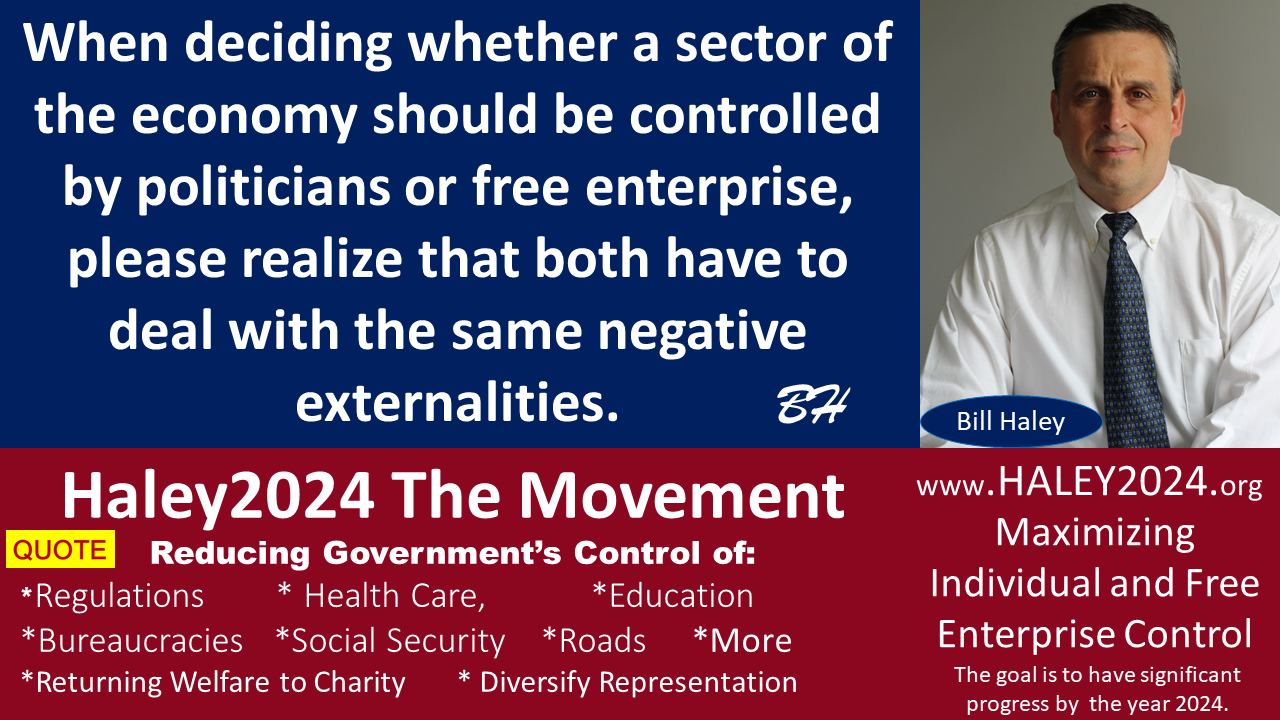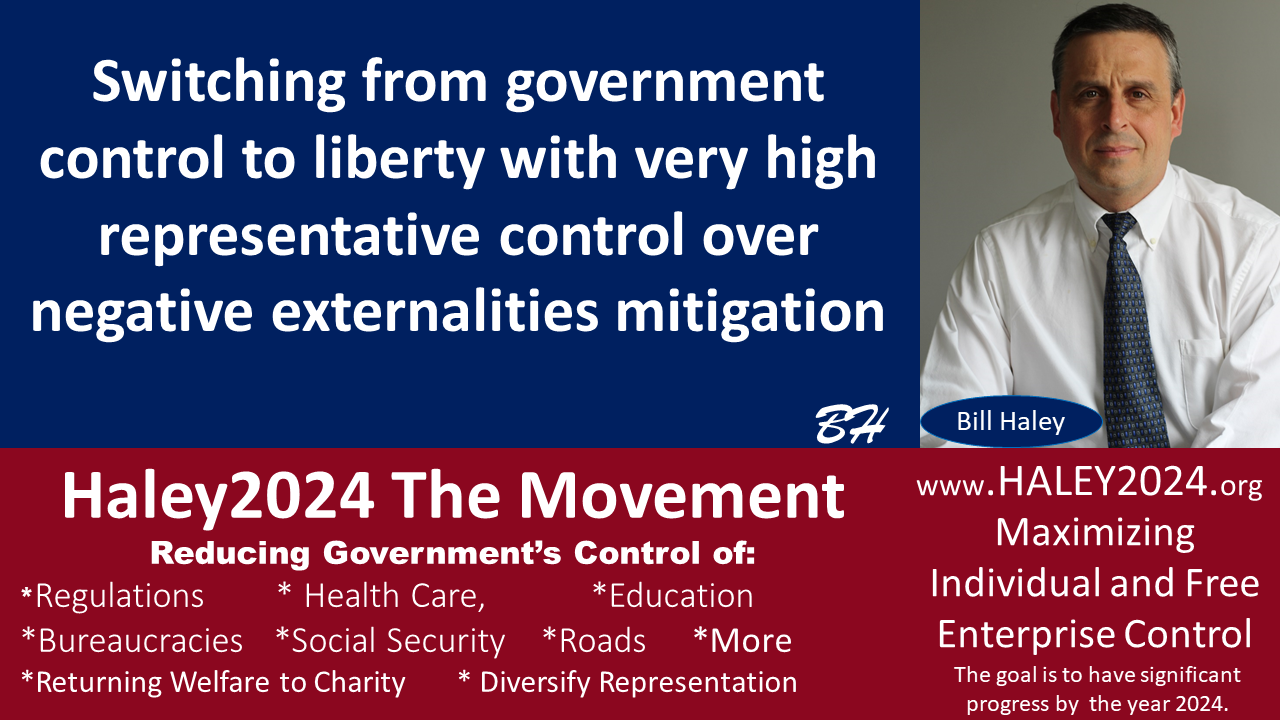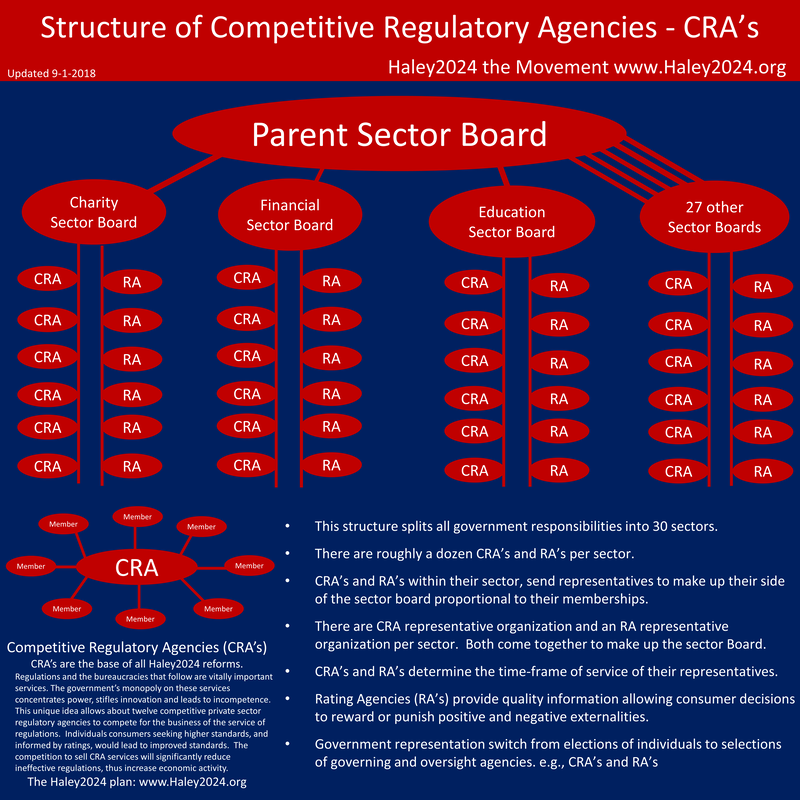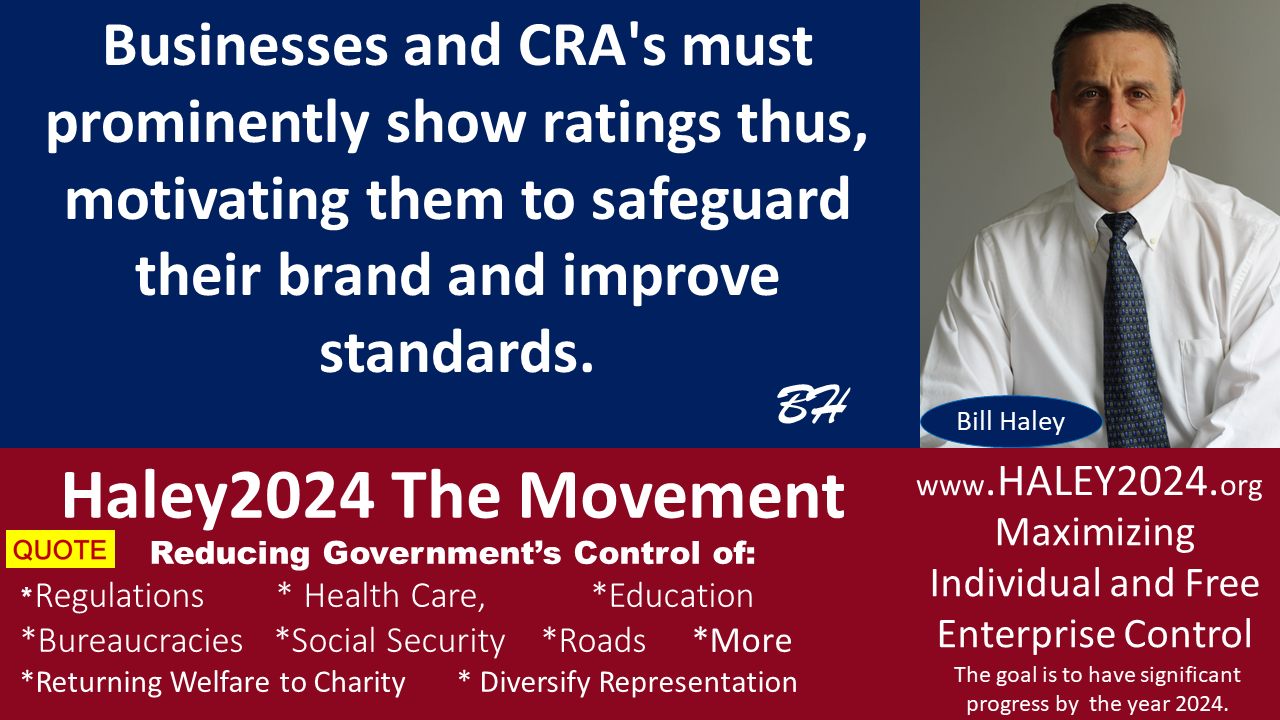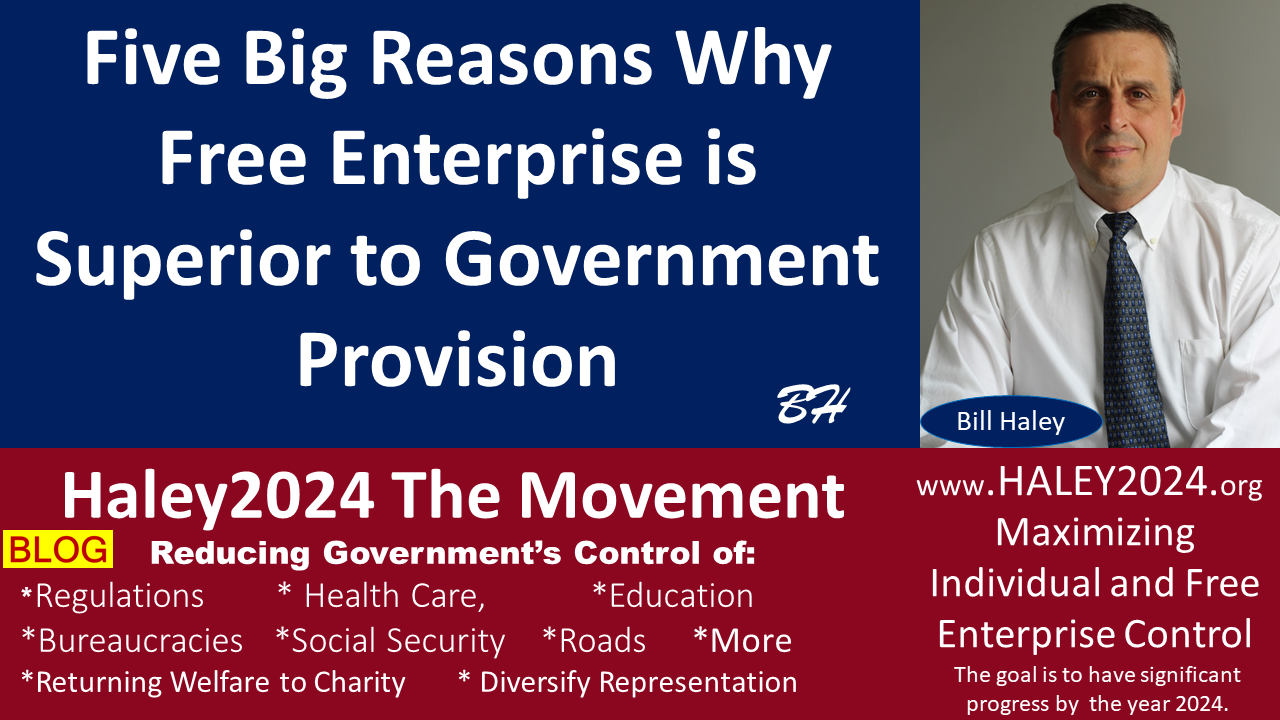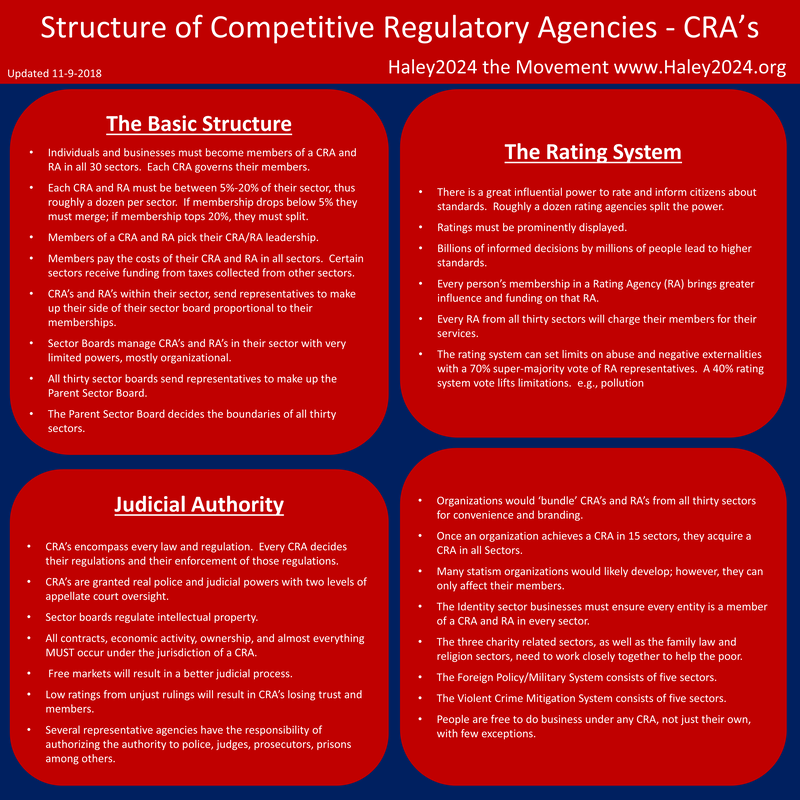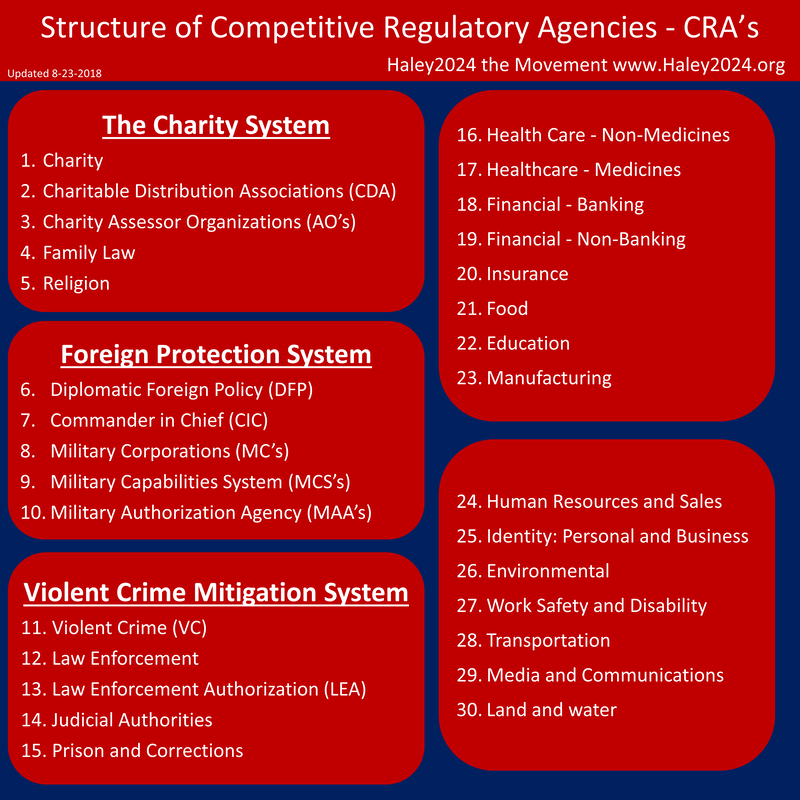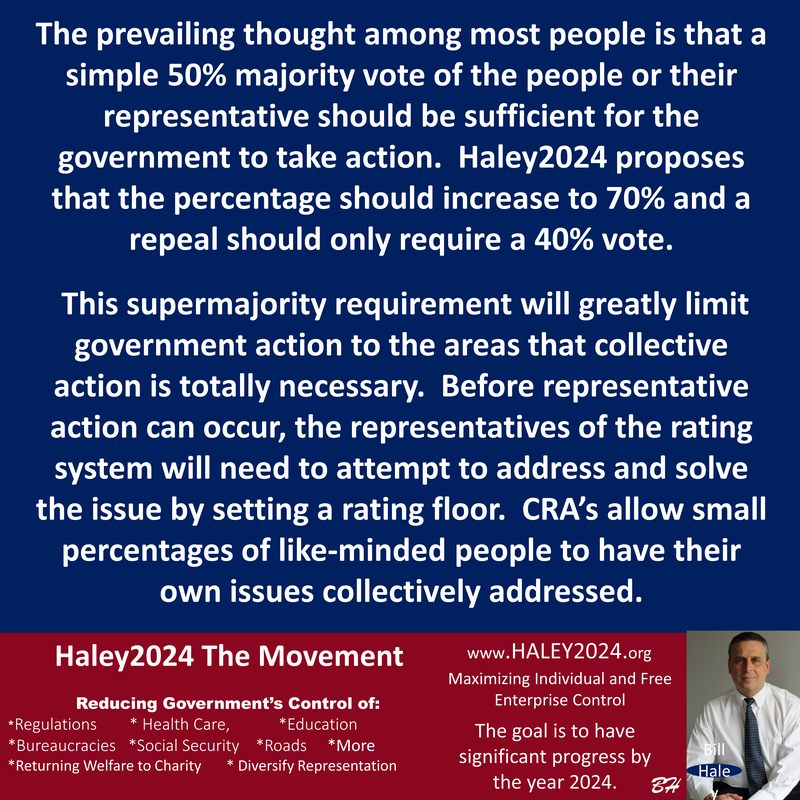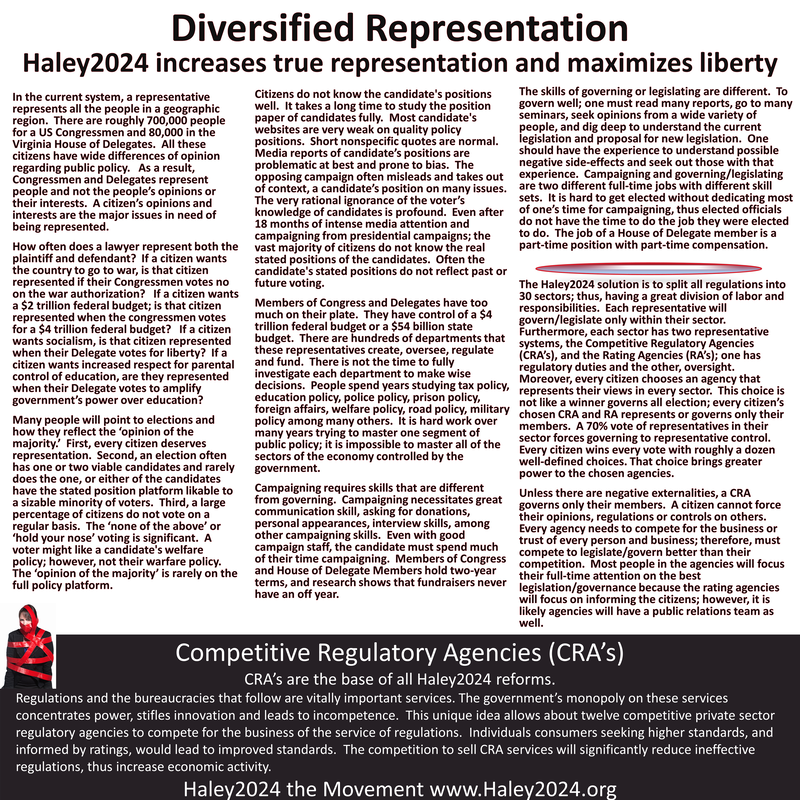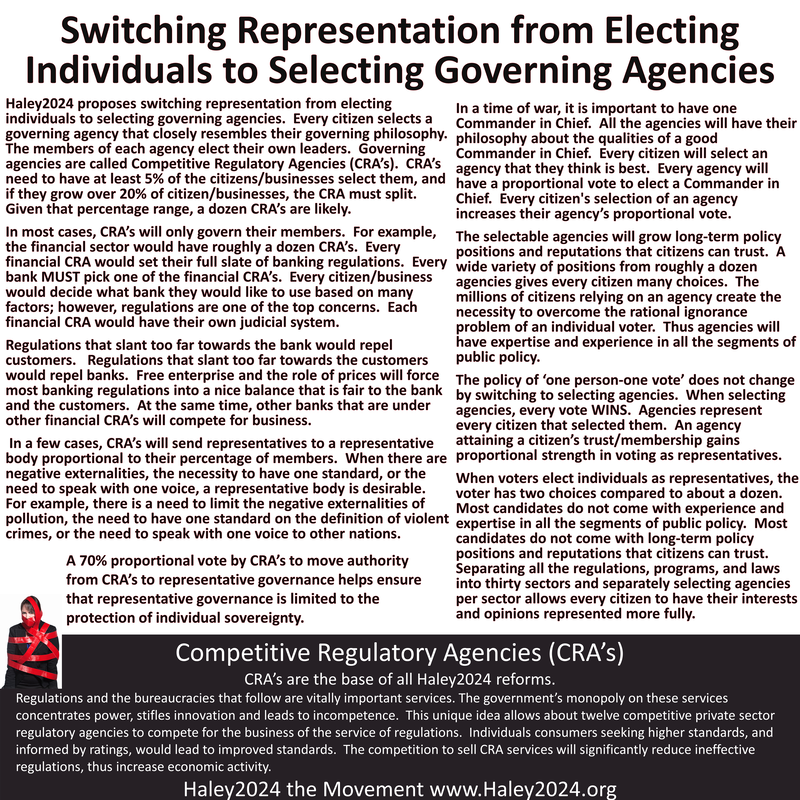Haley2024 increases true representation and maximizes liberty
| In the current system, a representative represents all the people in a geographic region. There are roughly 700,000 people for a US Congressmen and 80,000 in the Virginia House of Delegates. All these citizens have wide differences of opinion regarding public policy. As a result, Congressmen and Delegates represent people and not the people’s opinions or their interests. A citizen’s opinions and interests are the major issues in need of being represented. |
| How often does a lawyer represent both the plaintiff and the defendant? If a citizen wants the country to go to war, is that citizen represented if their Congressmen votes no on the war authorization? If a citizen wants a $2 trillion federal budget; is that citizen represented when the congressmen votes for a $4 trillion federal budget? If a citizen wants socialism, is that citizen represented when their Delegate votes for liberty? If a citizen wants increased respect for parental control of education, are they represented when their Delegate votes to amplify government’s power over education? |
| Many people will point to elections and how they reflect the ‘opinion of the majority.’ First, every citizen deserves representation. Second, an election often has one or two viable candidates and rarely does the one, or either of the candidates have the stated position platform likable to a sizable minority of voters. Third, a large percentage of citizens do not vote on a regular basis. The ‘none of the above’ or ‘hold your nose’ voting is significant. A voter might like a candidate's welfare policy; however, not their warfare policy. The ‘opinion of the majority’ is rarely on the full policy platform |
| Citizens do not know the candidate's positions well. It takes a long time to study the position paper of candidates fully. Most candidate's websites are very weak on quality policy positions. Short nonspecific quotes are normal. Media reports of candidate’s positions are problematic at best and prone to bias. The opposing campaign often misleads and takes out of context, a candidate’s position on many issues. The very rational ignorance of the voter’s knowledge of candidates is profound. Even after 18 months of intense media attention and campaigning from presidential campaigns; the vast majority of citizens do not know the real stated positions of the candidates. Often the candidate's stated positions do not reflect past or future voting. |
| Members of Congress and Delegates have too much on their plate. They have control of a $4 trillion federal budget or a $54 billion state budget. There are hundreds of departments that these representatives create, oversee, regulate and fund. There is not the time to fully investigate each department to make wise decisions. People spend years studying tax policy, education policy, police policy, prison policy, foreign affairs, welfare policy, road policy, military policy among many others. It is hard work over many years trying to master one segment of public policy; it is impossible to master all of the sectors of the economy controlled by the government |
| Campaigning requires skills that are different from governing. Campaigning necessitates great communication skill, asking for donations, personal appearances, interview skills, among other campaigning skills. Even with good campaign staff, the candidate must spend much of their time campaigning. Members of Congress and House of Delegate Members hold two-year terms, and research shows that fundraisers never have an off year. |
| The skills of governing or legislating are different. To govern well; one must read many reports, go to many seminars, seek opinions from a wide variety of people, and dig deep to understand the current legislation and proposal for new legislation. One should have the experience to understand possible negative side-effects and seek out those with that experience. Campaigning and governing/legislating are two different full-time jobs with different skill sets. It is hard to get elected without dedicating most of one’s time for campaigning, thus elected officials do not have the time to do the job they were elected to do. The job of a House of Delegate member is a part-time position with part-time compensation. |
The Haley2024 Solution
| The Haley2024 solution is to split all regulations into 30 sectors; thus, having a great division of labor and responsibilities. Each representative will govern/legislate only within their sector. Furthermore, each sector has two representative systems, the Competitive Regulatory Agencies (CRA’s), and the Rating Agencies (RA’s); one has regulatory duties and the other, oversight. Moreover, every citizen chooses an agency that represents their views in every sector. This choice is not like a winner governs all election; every citizen’s chosen CRA and RA represents or governs only their members. A 70% vote of representatives in their sector forces governing to representative control. Every citizen wins every vote with roughly a dozen well-defined choices. That choice brings greater power to the chosen agencies. |
| Unless there are negative externalities, a CRA governs only their members. A citizen cannot force their opinions, regulations or controls on others. Every agency needs to compete for the business or trust of every person and business; therefore, must compete to legislate/govern better than their competition. Most people in the agencies will focus their full-time attention on the best legislation/governance because the rating agencies will focus on informing the citizens; however, it is likely agencies will have a public relations team as well. |
